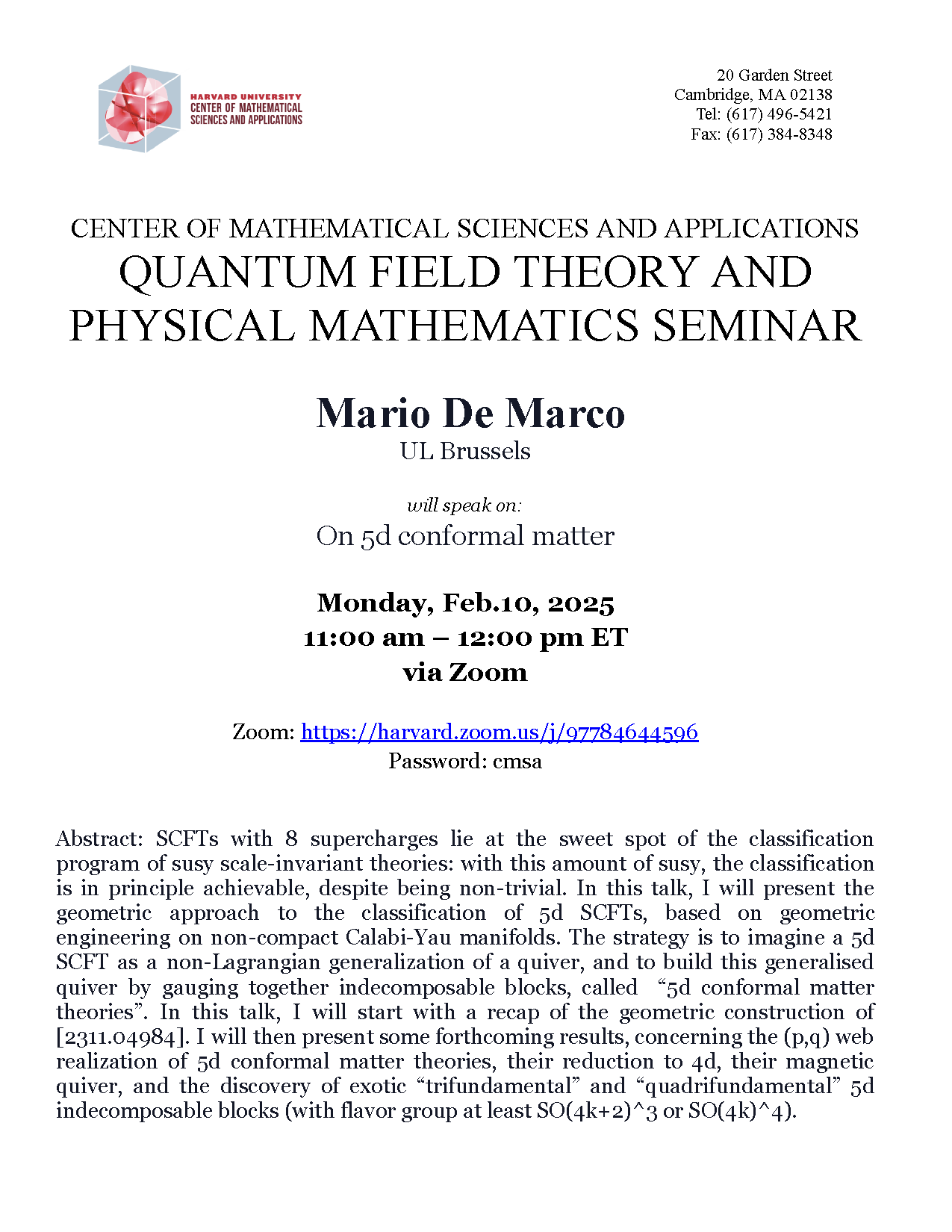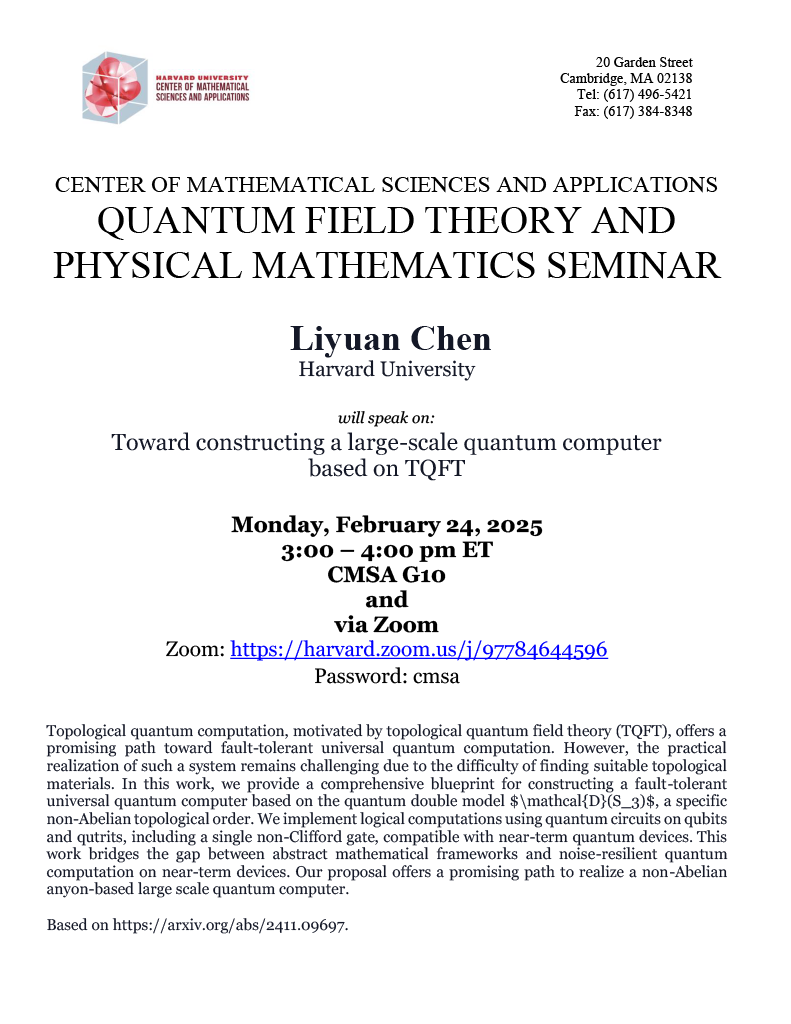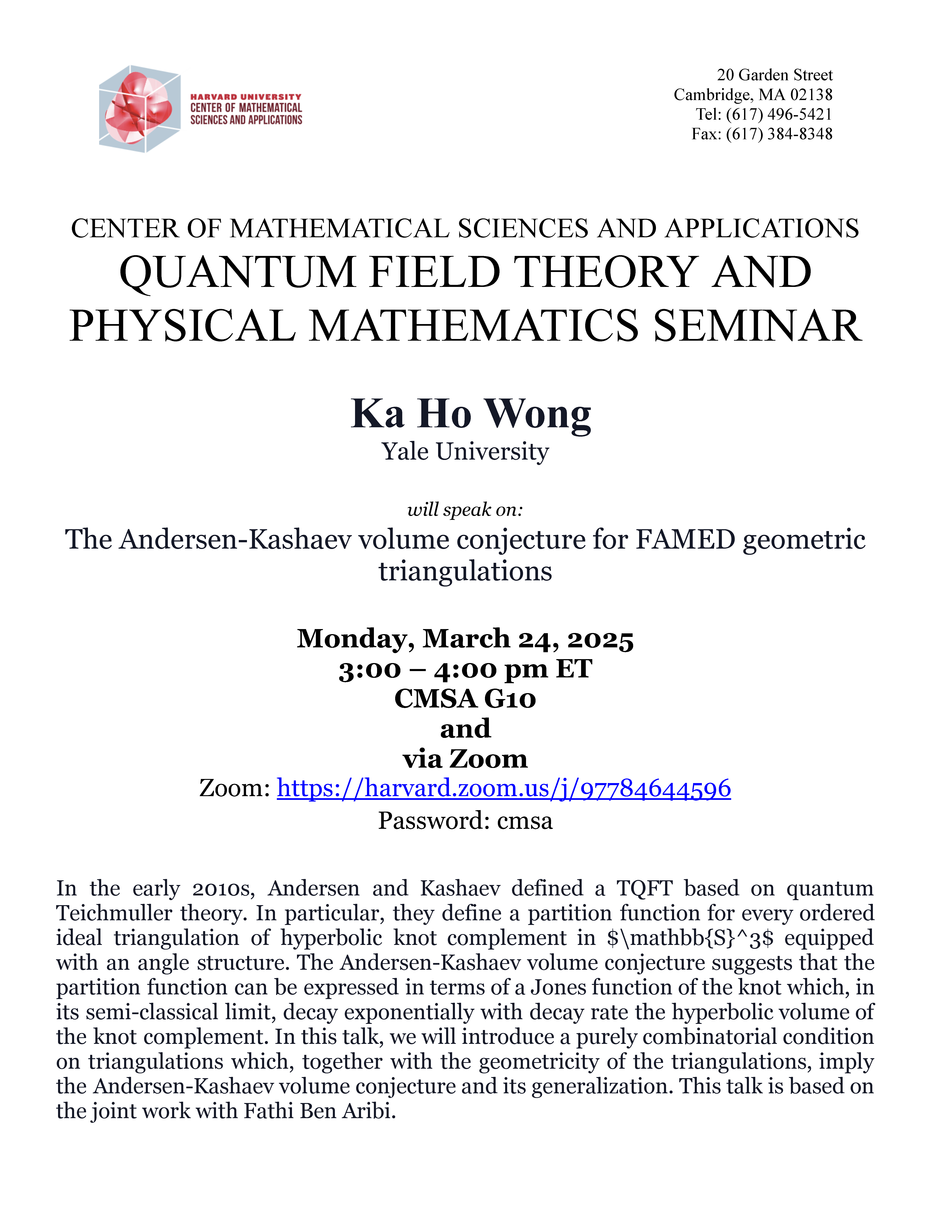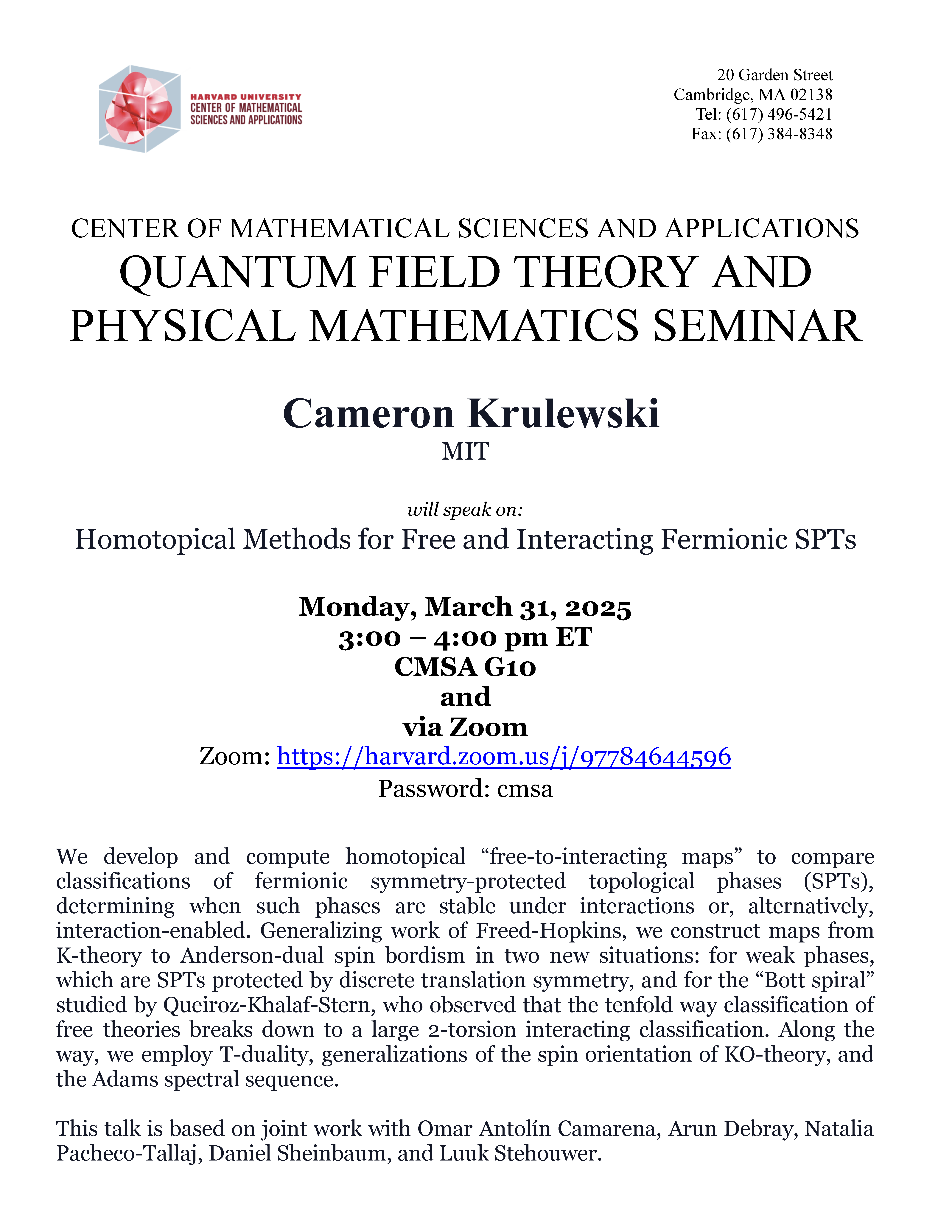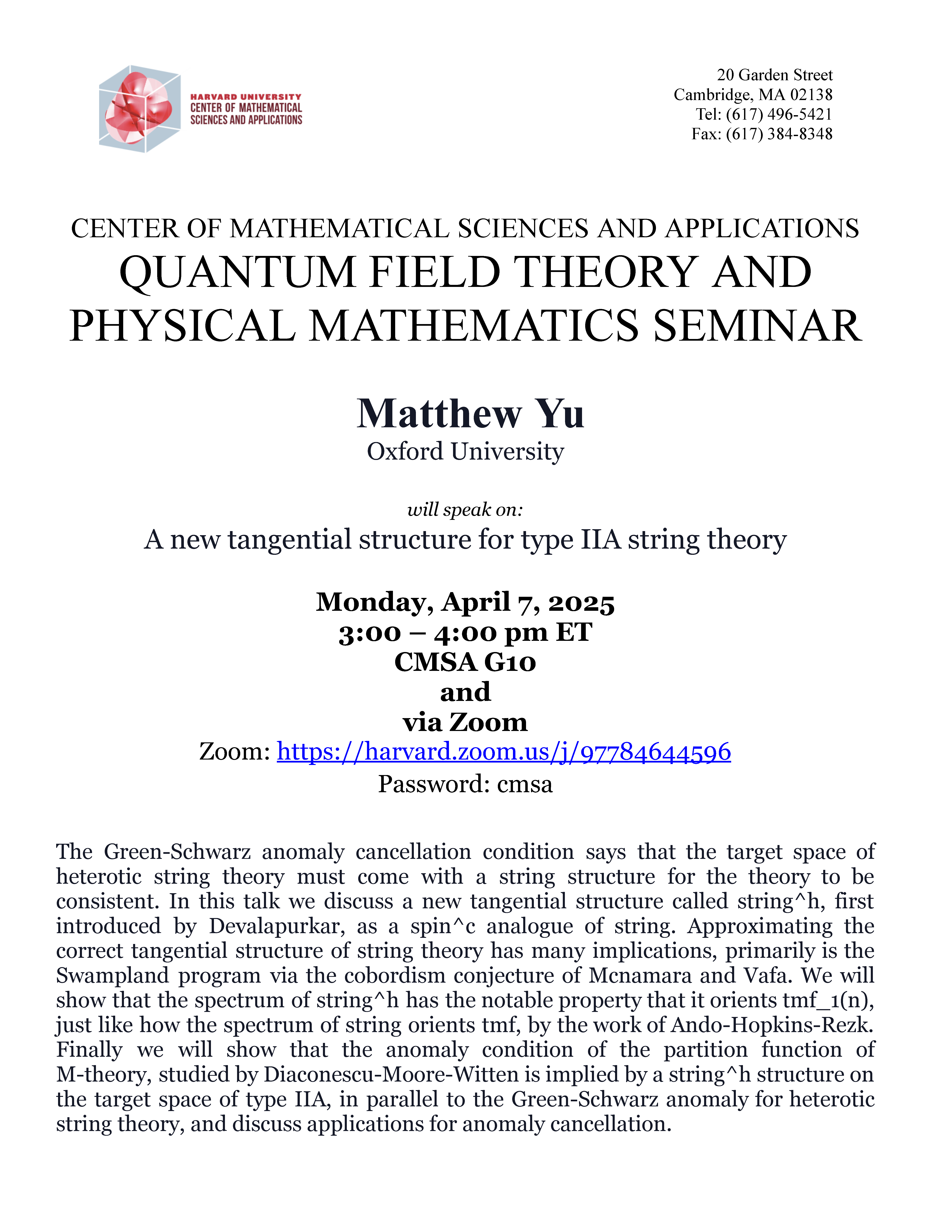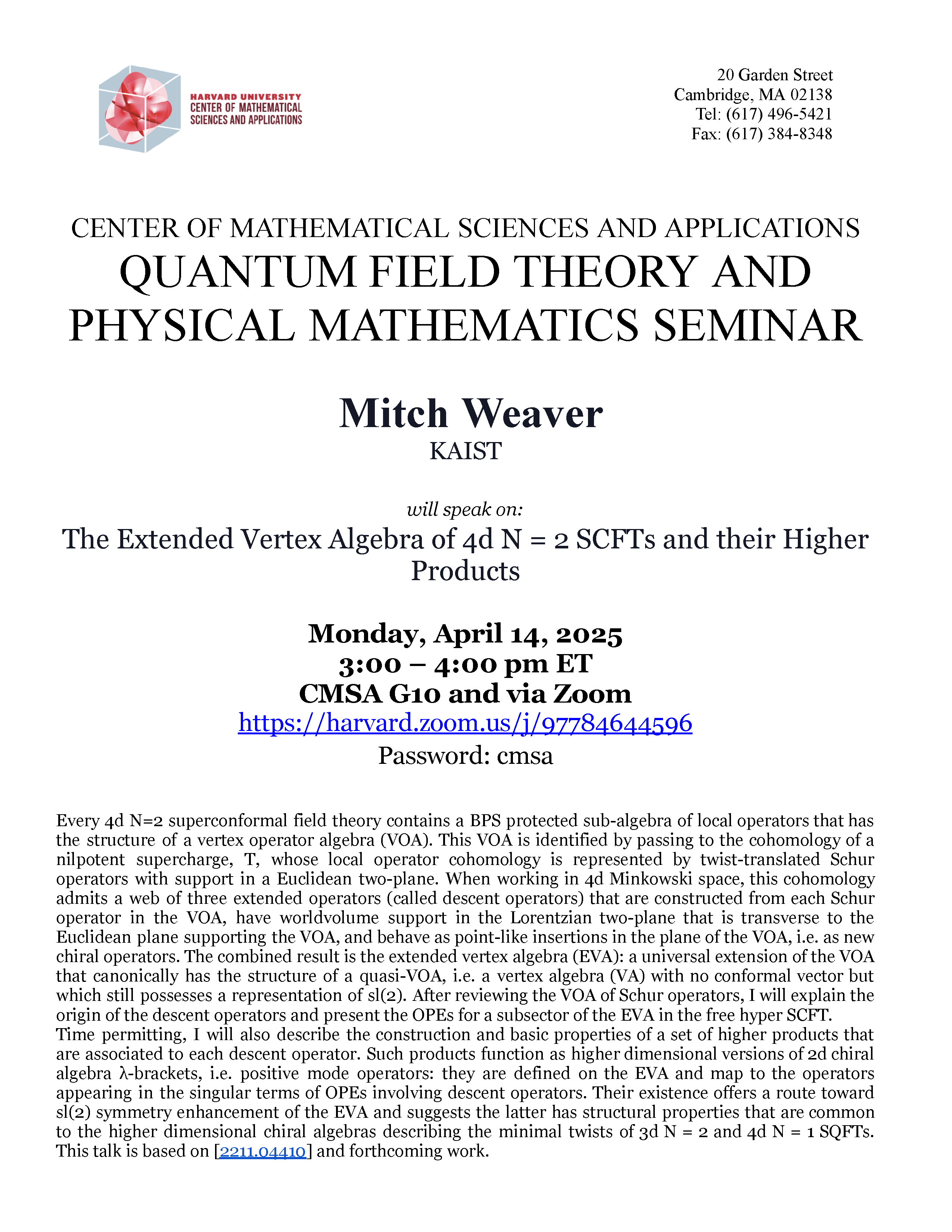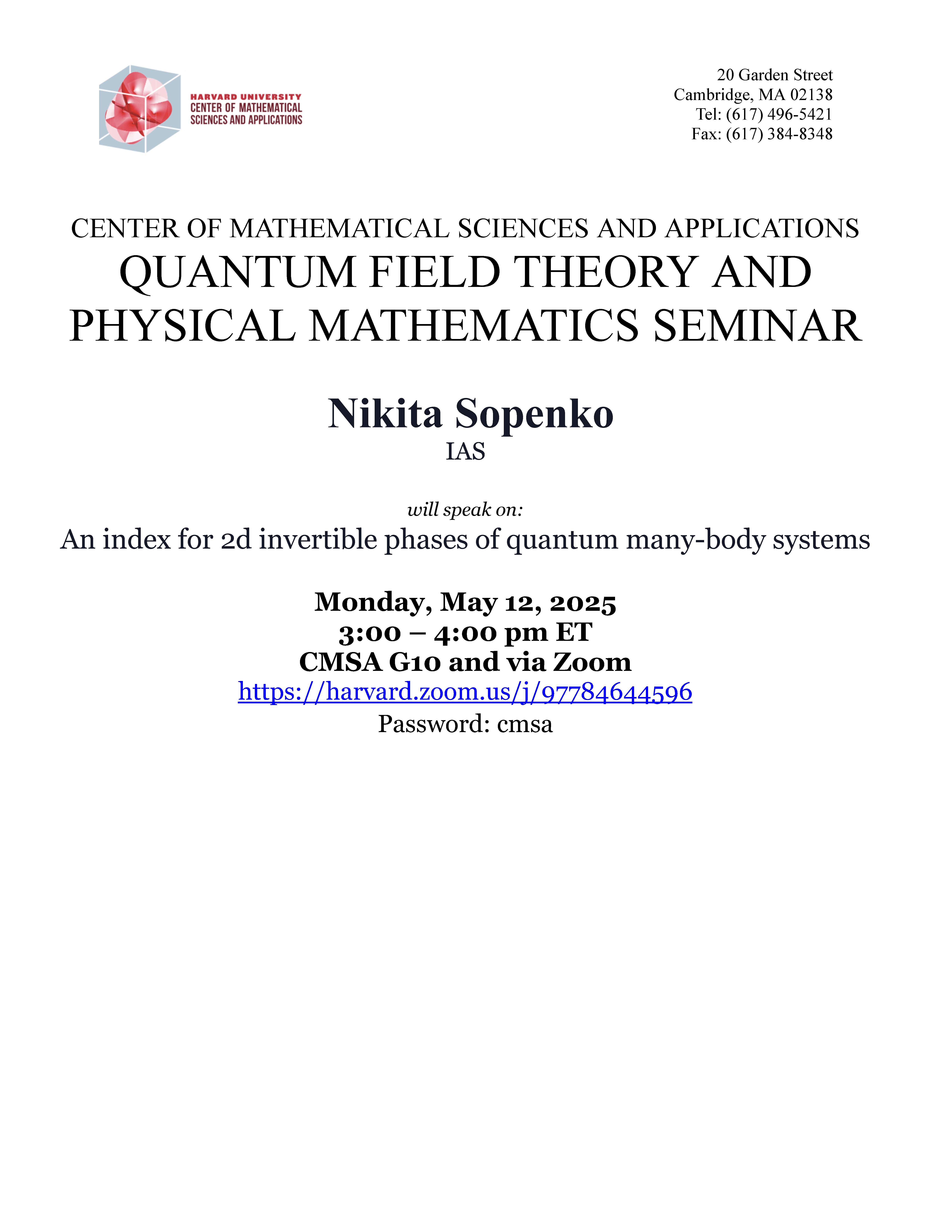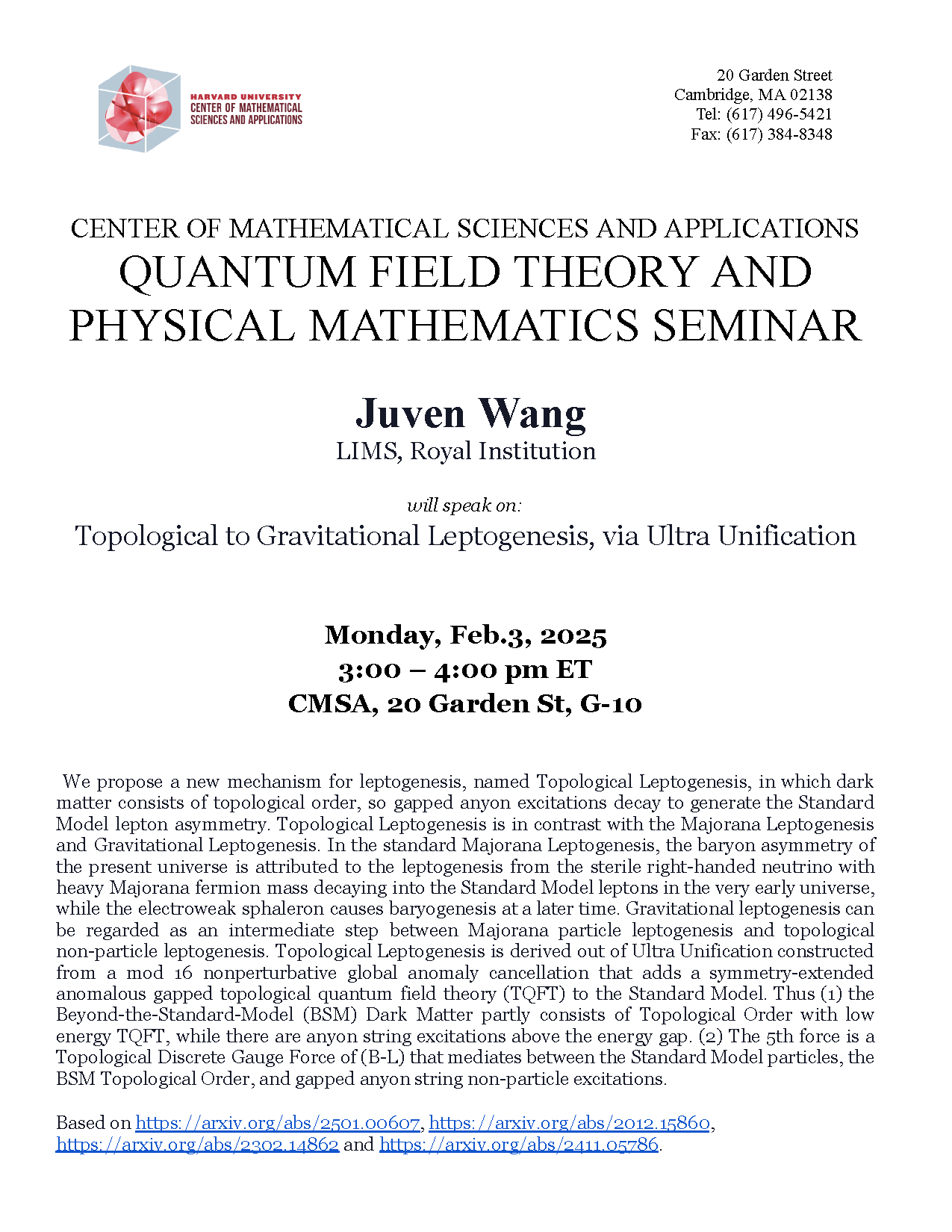
Topological to Gravitational Leptogenesis, via Ultra Unification
Quantum Field Theory and Physical Mathematics Seminar Speaker: Juven Wang (LIMS, Royal Institution) Title: Topological to Gravitational Leptogenesis, via Ultra Unification Abstract: We propose a new mechanism for leptogenesis, named Topological Leptogenesis, in which dark matter consists of topological order, so gapped anyon excitations decay to generate the Standard Model lepton asymmetry. Topological Leptogenesis is in […]

